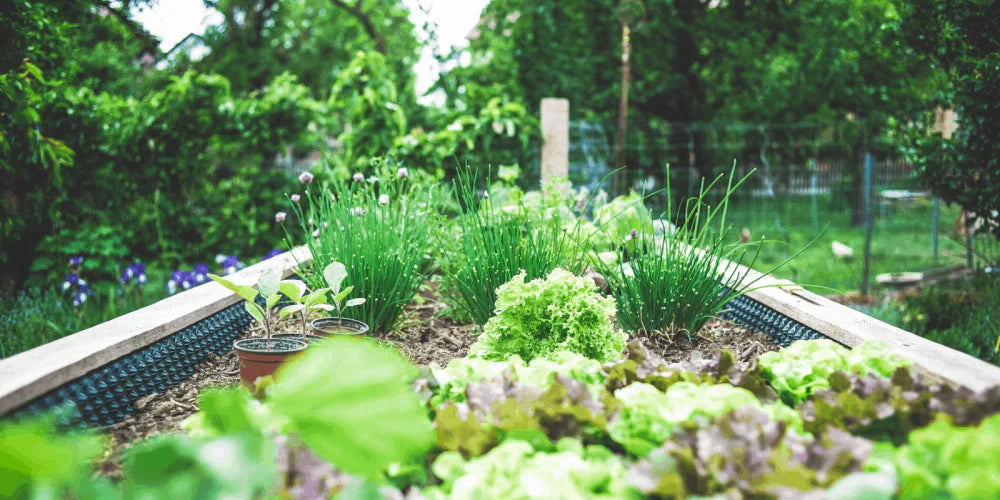While the idea of a suburban squeezed liquid worm fertiliser sounds like nature’s bargain, it’s important to understand the origin and process used to produce the aforementioned ‘bargain’ product.
First up, worms don’t actually wee, so we recommend mentally crossing out the words ‘worm wee’ for all future use. If you’re curious, worms release their water waste through pores on their body, (the way we sweat) but it’s not the same as urine.
What is Leachate?
The product often referred to as ‘worm wee’ or ‘worm juice’ is simply the excess liquid drained through a worm farm environment from inputs and watering. It is more accurately known as leachate. If you’re a worm farm user, you’ll be familiar with leachate; it’s the liquid that passes through your worm farm and pools at the bottom to be drained. If feed stocks are high in moisture content (e.g. lettuce, melons or tomatoes) or if you over-water the bedding, you’ll probably notice more leachate.
Is Leachate Safe to Use in the Garden?
The Risks of Using Leachate
While leachate may likely have picked up some beneficial microbes on its way through your worm farm (as it’s passed by some of that microbially rich worm cast), it has also passed through decomposing matter and therefore may contain microbes that are not so beneficial.
Aerobic vs Anaerobic Conditions
In our vermicomposting vs conventional composting article, we talk about the difference between aerobic (what you want) and anaerobic (what you don’t want in worm farming) which also applies here. It is important to note that anaerobic microbes are also beneficial, just not in a worm farming context. Depending on how long the leachate is left to pool in the bottom of your worm farm, it may become anaerobic (if it smells bad, ditch it).
Where to Use Leachate (and Where Not To)
As leachate can contain phytotoxic compounds, it’s best to err on the side of caution with your applications and avoid using it on your edible gardens. It can be used on ornamental gardens, but we personally put it back into our worm farm to assist in maintaining appropriate moisture levels. This way any beneficial microbes that are in there will be compounded and any bad guys that hitch a ride will be eliminated when they pass through the worm’s gut.
Signs Your Worm Farm Might Be Off-Balance
Too Much Leachate Means Too Much Moisture
A well-functioning worm farm should also not have a significant amount of leachate – this can indicate your worm farm is too high in moisture. Worms thrive in an environment that is moist but not wet, so getting an abundance of leachate is not your goal! We want to avoid flooding the worm farm as water will fill the essential oxygen pockets in the bedding.

What You Really Want: Worm Castings
What Are Worm Castings?
So, what’s this incredible worm liquid people are talking about then? What you’re really after is the worm cast. It is the humus, soil-like substance the worms leave behind after processing organic inputs. Supercharged with an amazing diversity and abundance of beneficial microbes, hormones, enzymes & growth promoters. Worm castings can be used to prepare worm juice or liquid worm cast concentrates (what we call Worm Brew).
Where leachate is an incidental by-product, worm cast extracts often called worm tea, are deliberately brewed from finished worm castings. These brews often include an added food source in the brewing process such as liquid fish and kelps.
How We Create Quality Worm Brew (Worm Juice)
The Brewing Process
When we prepare our commercial liquid Worm Brew we age, aerate and ‘feed’ the microbes in our worm cast to maximise the beneficial properties, particularly mycorrhiza fungi, before brewing
We then utilise a proprietary method of extraction to harvest the microbes, fulvic acids, humates and nutrients into a pure rainwater solution for our farmers and growers.
The extract encourages microbiological activity and speeds up the growth rate of bacteria, fungi, protozoa, and nematodes, helping plants compete with other pathogenic organisms – now that’s a quality brewed concentrate. Our Worms Downunder farm is peppered with ongoing experiments (like when we tried adding urea to our Worm Brew - read the blog here) and perfecting the recipe for our Worm Brew (Worm Juice) has been one of our greatest triumphs.
Final Thoughts on Leachate
So now you know, avoid the ‘wee’ and focus on nature’s ‘black gold’ (worm cast). Trust us, your soils and plants will thank you. While leachate might seem like a quick garden fix, the true benefits will be seen from worm castings and properly brewed worm cast extracts. With the right process, you can harness the full power of beneficial microbes and nutrients to supercharge your soil biology.
Recommended Products
Want to Produce Your Own Castings and Extracts?
If you want to have a go at producing your own worm cast and worm juice from home? Have a look at our worm farms here.


